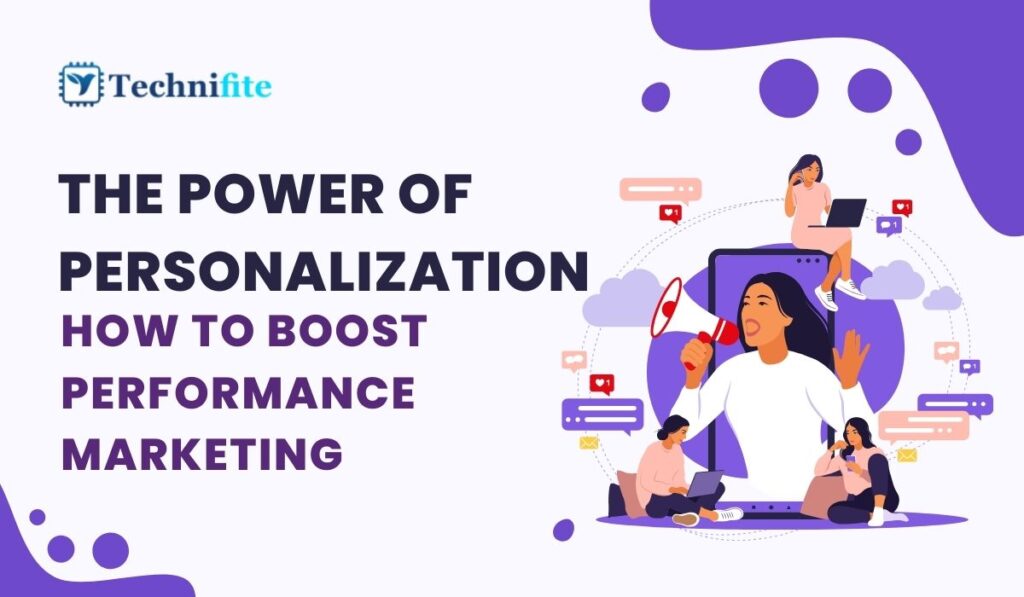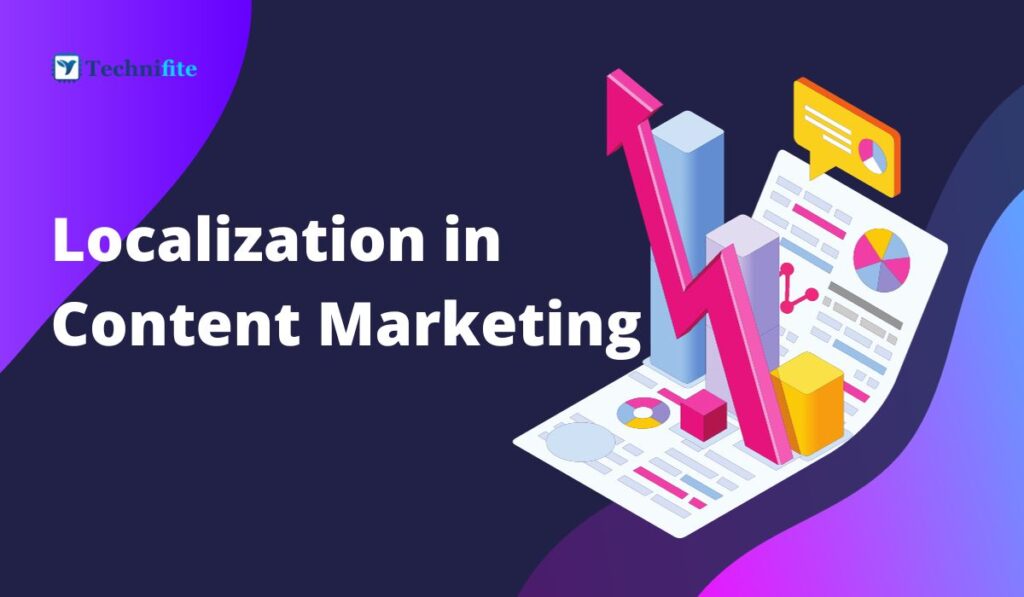The Power of Personalization for Performance Marketing: In the ever-evolving digital marketing landscape, the key to success is deeply understanding your audience and tailoring your strategies to meet their unique needs and preferences. This approach is commonly known as personalization and has become a cornerstone of effective performance marketing. When backed by data-driven strategies, personalisation can transform a marketing campaign from merely functional to incredibly impactful. In this blog post, we will explore the nuances of personalization, its significance in performance marketing, and the strategies businesses can employ to harness its full potential.
Understanding the Essence of Personalization in Performance Marketing
At its core, personalization involves creating tailored experiences for individual customers or specific segments of your audience. It’s about delivering the right message, at the right time, through the right channel, to the right person. While this might sound simple, the execution requires a deep understanding of customer behaviour, preferences, and demographics.
1. Why Personalization Matters
Personalization stands out as a beacon of relevance in an era where consumers are bombarded with generic marketing messages. Here’s why it matters:
a. Improved Customer Experience: Personalized experiences make customers feel valued and understood, leading to higher satisfaction.
b. Enhanced Engagement: Tailored content and offers capture attention better, increasing interaction and engagement rates.
c. Increased Conversions: When customers see products or services that resonate with their needs, they are more likely to purchase.
d. Customer Loyalty: Personalization fosters a sense of loyalty as customers are more likely to stick with brands that understand and cater to their preferences.
2. The Role of Data in Personalization
Data is the backbone of personalization. It provides insights into customer behaviour, purchase history, and preferences. Technological advancements allow businesses to collect and analyze vast amounts of data to gain actionable insights. When leveraged effectively, these insights empower marketers to make informed decisions and craft personalized marketing campaigns.
Data-Driven Personalization Strategies for Performance Marketing
1. Collecting Relevant Data
The journey towards effective personalization starts with data collection. Businesses can gather data through various channels:
a. Website Analytics: Analyzing user behaviour on your website provides valuable insights into what products or services visitors are interested in.
b. Social Media Monitoring: Social media platforms offer much information about customer sentiments and preferences.
c. Surveys and Feedback: Customer feedback can provide specific details about their needs and expectations.
d. Purchase History: Understanding what customers have bought in the past helps predict future preferences.
2. Segmentation and Targeting
Once you have the data, the next step is segmentation. Divide your audience into segments based on demographics, behaviour, and preferences. This segmentation allows for targeted marketing efforts. For instance:
a. Demographic Segmentation: Tailor your messages differently for various age groups, genders, or locations.
b. Behavioral Segmentation: Segment customers based on their interactions with your website, such as frequent visitors or recent buyers.
c. Personal Preferences: Customize content based on individual preferences, whether it’s related to products, content types, or communication channels.
3. Implementing Personalized Content
With segmented data in hand, create content that resonates with each segment. This could include:
a. Personalized Emails: Address customers by name and recommend products based on past purchases.
b. Dynamic Website Content: Show different content to different segments of your audience based on their interests and preferences.
c. Customized Product Recommendations: Utilize algorithms to suggest products or services similar to what the customer has shown interest in.
d. Tailored Social Media Ads: Craft ads specifically designed for different segments, ensuring relevance and engagement.
4. Automation and AI
Implementing personalization at scale often involves automation and artificial intelligence. Machine learning algorithms can analyze vast datasets to identify patterns and predict customer behaviour. AI-driven chatbots can provide personalized recommendations and real-time assistance, enhancing the overall customer experience.
5. Continuous Testing and Optimization
The digital landscape is dynamic, and customer preferences can change rapidly. Therefore, it’s essential to continually test different personalization strategies and optimize based on the results. A/B testing, analyzing click-through rates, and monitoring conversion metrics help refine your approach over time.
Challenges and Considerations
While personalization offers tremendous benefits, there are challenges and ethical considerations that businesses must navigate:
a. Privacy Concerns: With the increasing emphasis on data privacy, businesses need to be transparent about collecting and using customer data, ensuring compliance with regulations like GDPR.
b. Data Security: Safeguarding customer data from breaches is crucial. Invest in robust security measures to protect sensitive information.
c. Avoiding Over-Personalization: There’s a fine line between personalization and intrusion. Bombarding customers with extremely personalized messages can feel invasive. Strive for balance and respect customer boundaries.
d. Technology Investment: Implementing advanced personalization strategies often requires significant investments in technology and talent. Businesses need to weigh the costs against the potential returns.
Conclusion
In the digital age, where attention spans are fleeting, and competition is fierce, the power of personalization cannot be overstated. Data-driven personalization strategies boost marketing campaigns’ performance and foster meaningful connections between businesses and their customers. By harnessing the potential of data, segmentation, automation, and continuous optimization, businesses can create exceptional personalized experiences that drive engagement, loyalty, and revenue. As we move forward, the synergy between data and personalization will continue to shape the future of marketing, allowing businesses to thrive in an increasingly personalized world.
Frequently Asked Questions (FAQs)
What is Personalization in Marketing?
Personalization in marketing refers to tailoring marketing messages, content, and offers to specific individuals or groups based on their preferences, behaviours, and demographics. It uses data and insights to create customized customer experiences, making them feel valued and understood. Personalization enhances customer engagement, boosts conversions, and fosters long-term loyalty by delivering relevant and meaningful interactions.
Why is Personalization Important for Businesses?
Personalization is essential for businesses because it significantly improves customer experience. Customers who receive personalized messages and offers are more likely to engage with the brand, make purchases, and become loyal patrons. Personalization also helps businesses stand out in the competitive market, fosters customer loyalty, and increases lifetime value. By understanding individual customer needs and preferences, businesses can build stronger relationships and drive revenue growth.
How is Customer Data Used for Personalization?
Customer data is the foundation of personalization. Businesses collect data from various sources such as website interactions, social media activities, purchase history, and surveys. This data is analyzed to understand customer behaviour, preferences, and interests. Advanced technologies and algorithms are employed to process this data, identify patterns, and predict future customer actions. By leveraging these insights, businesses can create personalized marketing campaigns, recommend products, and provide tailored customer experiences.
Is Personalization Ethical and Secure?
Personalization can be ethical and secure if businesses handle customer data responsibly. It is crucial to adhere to data protection regulations and ensure customer privacy. Transparent communication with customers about data usage and obtaining their consent is essential. Implementing robust cybersecurity measures to protect customer data from unauthorized access is equally important. Personalization enhances customer trust and confidence in the brand when done ethically and securely.
How Can Small Businesses Implement Personalization?
Small businesses can implement personalization by starting with the data they already have, such as customer purchase history and feedback. Utilize affordable customer relationship management (CRM) software to organize and analyze this data. Engage with customers on social media platforms and gather insights about their preferences. Implement basic email personalization by addressing customers by name and sending relevant product recommendations. As the business grows, invest in more advanced personalization tools and technologies to enhance the level of customization.


